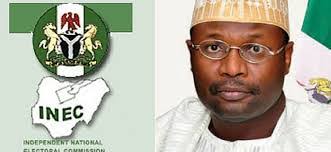
Ola Akinwunmi
The Independent National Electoral Commission (INEC) has announced that governorship elections in Ekiti and Osun states will be held on June 20 and August 8, 2026, respectively, setting the stage for a critical electoral season in two politically significant states.
INEC Chairman, Professor Mahmood Yakubu, disclosed the dates on Friday in Abuja during the swearing-in ceremony of six newly confirmed Resident Electoral Commissioners (RECs). He stated that the commission is acting in accordance with legal provisions that require it to publish election dates at least 360 days in advance.
“The last governorship elections in both states were held in 2022. Their four-year tenures end next year. In line with the law, INEC has approved the timetable and schedule of activities for the Ekiti and Osun governorship elections,” Yakubu said.
According to the commission, party primaries in Ekiti State will run from October 20 to November 10, 2025. Political parties are required to upload their nomination forms by December 22, 2025, no later than 6:00 p.m. The final list of candidates will be released on January 18, 2026, and campaigns will begin on January 21, ending 24 hours before the election.
In Osun State, the process will begin with party primaries between November 24 and December 15, 2025. The nomination portal will close on February 9, 2026, while the final list of candidates is set to be published on March 9, 2026. Campaigns will officially kick off on March 11.
Yakubu assured that a detailed schedule for both elections has been uploaded on INEC’s website and social media platforms to guide political stakeholders and the public.
In addition to the election announcement, INEC confirmed the redeployment of several Resident Electoral Commissioners across various states. These include: Sa’ad Idris to Gombe, Johnson Sinikiem to Cross River, Feyijimi Ibiyemi to Ogun, Mukhtar Gajiram to Taraba, Chukwuemeka Ibeziako to Abia, Umar Garba to Sokoto.
The INEC chairman said the move was part of preparations for upcoming elections and described the reshuffle as a “routine administrative exercise.” He also warned that RECs must adhere strictly to the electoral laws and internal guidelines, adding that any breach would be met with appropriate consequences.
“You must never act independently or think that you can act in violation of the law,” he cautioned the new appointees. “We will hold you accountable.”
Yakubu also addressed growing public concern over delays in conducting 17 pending bye-elections and resuming Continuous Voter Registration (CVR) nationwide.
“We are aware of the urgency to commence the CVR, particularly in view of the forthcoming governorship election in Anambra State,” he said. “We want to assure Nigerians that we are finalising preparations for both activities.”
Details on the dates for the bye-elections and voter registration will be made public soon, Yakubu added.
Speaking on behalf of the newly appointed RECs, Sa’ad Idris pledged a commitment to transparency, impartiality, and broad stakeholder engagement. He said the new officials are fully aware of the responsibility that comes with their roles.
“We pledge to discharge our duties with utmost integrity and professionalism. We understand that the credibility of elections is built not only on systems but also on the character of those entrusted to oversee them,” Idris said.
He emphasized voter education and citizen participation as key areas the new RECs intend to prioritize, promising close collaboration with civil society groups, the media, and security agencies.
As the political climate begins to warm up in Ekiti and Osun, all eyes will be on INEC to deliver credible, free, and fair elections—while addressing long-standing electoral challenges across the country.
